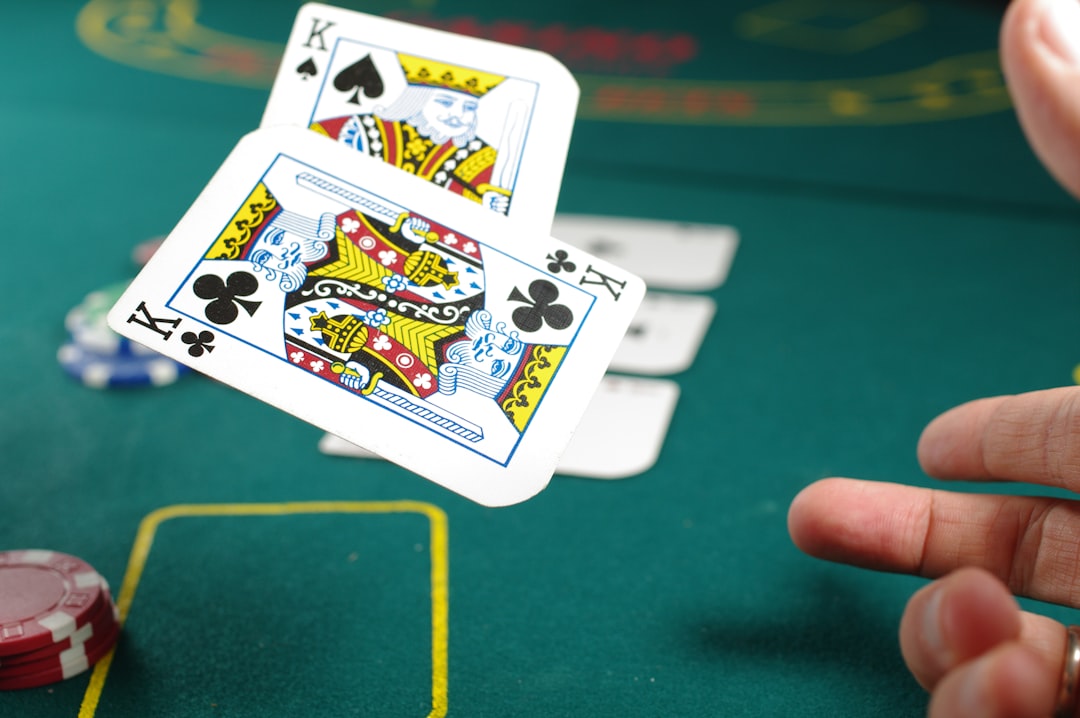The house always wins: perils of student gambling

Liam Curran undertakes a study on the dangers of gambling among the student populace
Gambling is a prominent feature in nearly every society throughout the world. Even in times and places where the practice is strictly prohibited people still find a way to speculate profit, but most often lose. Why? Well, because the pride of winning usually isn’t enough. Or because a 5-fold accumulator simply makes Huddersfield vs Stoke a more interesting game.
Gambling, or risk-taking in general, is a trait in fashion. It underpins the neo-liberal order we exist in, even if the house always wins. But, without question, the ability to put it all on-the-line has forever been an attractive characteristic. ‘He who dares wins’.
I can hardly get through a game of football without seeing Ray Winstone at least 6 separate times
For all the glamour and glory, however, gambling can be an intensely destructive force that sees people lose their money, their homes and even their loved ones. We have always known that for some, gambling devolves into an addiction more life-rupturing than any substance. The Gambling Commission last year reported that there were some 2 million people who had developed a problem with gambling or were at severe risk or doing so. The Commission also reported this plight has helped amass a £13.8 billion profit for the industry.
Although for most of my life I was entirely oblivious, it turned out my grandfather had a complicated relationship with gambling. Of course, you never discover the full extent until after they pass away. Beyond that I am constantly being told by friends about the ridiculous winnings or losses they have managed to conjure up. I can hardly get through a game of football without seeing Ray Winstone at least 6 separate times.
Find out if you may have a #gambling problem by taking our #quiz: https://t.co/PzcFc344VK
— BeGambleAware (@BeGambleAware) April 5, 2018
The concept of betting has never greatly appealed to me. I think I lack the temperament. Going to the casino after a night out, or sitting with a friend at the bookies always felt uncomfortable. Often you’d be surrounded by older people who would be on their own, expressionless, pouring money away I’m not sure they could really afford. The flashing lights and hyper-electronic sounds piercing into you the whole time all feels very dystopian.
For this reason I wanted to explore and understand how the allure of a quick trivial profit can for some turn into a debilitating illness. There is never a clear path to addiction, but like many it starts from a surprisingly young age. As I discovered, students who are renowned for their volatile existence are incredibly at risk.
Reaching out to a number of students who anonymously have agreed to share some of their stories revealed experiences which at first felt completely dumbfounding:
Anon1: “Before I went to uni I was given £2,000 in a savings account. The first day I went to the Casino and lost £1,700. In my mind I just thought to myself it’s time to go home and win it all back tomorrow. I was certain, it wasn’t even a question, I was going to win it back. The next day I went in with £300 and an hour and half later I was sat on the street with no money.”
That was the kind of behaviour I struggled to comprehend but was simply a part of what Anon1 called “sensation seeking.” For him the actual amount of money was irrelevant; “I wasn’t looking for a target, I just wanted a win, again and again. You go to a casino and no one is smiling. It’s pure stress, even if you’re winning your face stays the same because you know you’re going to lose it all anyway. It’s all about finding that feeling.”
For Anon 1 this bizarre and extreme relationship with sensation had a profound impact on his studies when he got to uni; “If I didn’t blow all my money away I might not of had to get a job while studying, I could of gone into lectures properly and actually got a degree. While I was at uni I opened 3 separate bank accounts and maxed out the overdrafts. Completely illegal. I took out a £300 Wonga loan, credit cards...” This irrationality was entirely alien to me and yet it was more common than I had initially suspected.
students are indeed at a heightened risk of developing a gambling addiction
Anon 2 was another young adult which demonstrated once again just how far an almost pathological desire for risk can take someone. Spending around “£500 a week” habitually at the bookies he put £1 on a 6 fold football accumulator with odds of 15,000/1. It came through.
After spending £5,000 on a car Anon 2 further diluted his winnings but, constantly harassed by a difficult relationship with gambling, declared bankruptcy only 6 months after his big win. “Looking back on it”, he reflects “I think I probably was addicted, as much as I never wanted to admit at the time.”
Anon 1 and Anon 2 both cite a certain youthful sense of freedom coupled with an ostensible distance from responsibility as determining factors in the development of these dramatic habits. Anon 1 however still holds that he never actually had an addiction and the sensation of gambling could easily be replaced with others such as drugs, sex or even going to the gym.
In trying to more fundamentally discern the actual nature of addiction and its intersection with a care-free youthful sentiment I reached out to Rebecca Vials, a youth outreach officer and counselor from the Addiction Recovery Agency. In our conversation she shed light on the nature of problem gambling in relation to young people and illuminated the sign posts to look out for in the development of a more acute addiction.
Photo by Krissia Cruz / Unsplash
What Rebecca confirmed for me was that students are indeed at a heightened risk of developing a gambling addiction. A care-free attitude, or alternatively, feelings of depression and suicidal thoughts can cause some students to put their money on-the-line obsessively. “It is not entirely uncommon” she tells me, for students to try and “double their money” when their student loan comes in.
Overdrafts, student finance, payday loans, all the elements present in Anon1’s story, were regular features in ARA’s support network. Worryingly, Rebecca informed me that the suicide rate is highest amongst problem gamblers than with any other kind of addiction. While still being tethered to reality, addicts can see their lives fall beneath their feet in a way that substance abusers don’t always fully realise.
Similar to the Anon1’s experience is Rebecca’s description of what a gambling addiction exactly entails. It is, she describes, a process of chasing feelings or escapism. Like any other substance the thrill of gambling releases dopamine to the brain and over time people become less receptive of and dependent on it. Gambling “Literally takes their brain into a zone”, a place where one can escape commitment, troubled relationships and the varying strains of life. The trouble lies in realising when this behaviour can become severely damaging for all those involved.
Issues with Gambling start young, as young as 13 and could involve harmless arcade games or a visit to the Grand National. There have also been recent developments which indicate gambling addictions may only increase in severity for the future.
There are also a plethora of websites which allow gamers to bet and buy in-game components
In particular Rebecca highlights the growth of online gaming as a cause for concern as young adults and children find themselves handling and losing ever greater sums of money. There are even those willing to spend as much as £5,000 in a single sitting on FIFA Ultimate Team packs. There are also a plethora of websites which allow gamers to bet and buy in-game components such as inventories for Counter Strike Global Offensive.
Beyond this new slot machines, such as FOBTs are being dubbed the ‘crack cocaine of gambling.’ Whereas with arcade games, which young people have grown up on, may take a maximum £2 for a game, these machines take up to £200 a spin and can suck £18,000 from a card within an hour without any money being touched at all.
Great to speak at problem gambling event @YourSenedd kindly hosted by @DarrenMillarAM our contact is https://t.co/Q4fDfMqMnp
— ARA Bristol (@ARA_Bristol) October 18, 2017
Unfortunately, betting seems to be the ‘most secretive addiction’; Secretive because it hides in plain sight. You don’t have to go to the toilet to get this fix and hundreds of pounds can be lost in an instant on a phone whilst being surrounded by a group of friends.
The telltale signs to look out for may be as inconspicuous as bragging about winnings. For the vast majority, the house does always win and so although someone is proud of a particular bet there may be a deeper, underlying issue. Analysing your distance to the people around you and being honest about the situation appears to be the toughest but surest way of coming face-to-face with a potential addiction.
Whilst speaking with people who express problems with gambling, one thing that has become increasingly apparent is that how someone reflects and characterises their experience depends largely on how they perceive themselves. Addiction and risk-taking are both edges of a blade that cut through the heart of the human-psyche. The journey of coming to terms with our impulses is one that undoubtedly leads to enlightenment but often leaves a path of destruction.
If you, or someone you know, is experiencing a problem with gambling then do not hesitate to get in contact with the Addiction Recovery Agency based here in Bristol. They can provide free counseling both face-to-face and over-the-phone.
Featured image: Unsplash/Michał Parzuchowski
Have you had any experience of gambling? Let us know...
